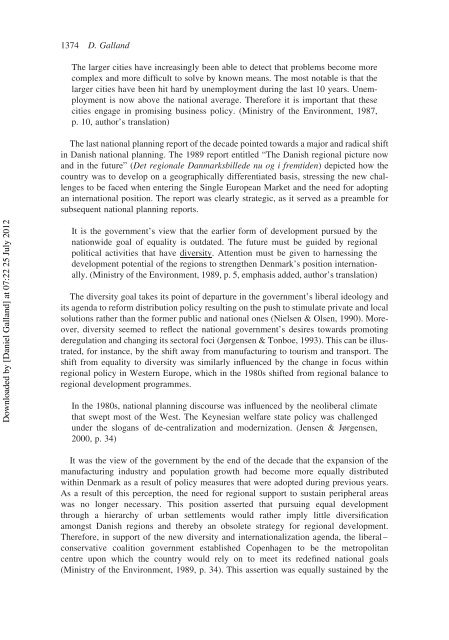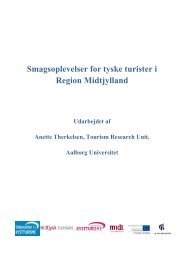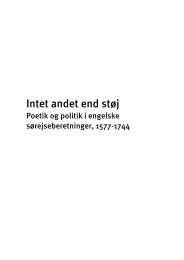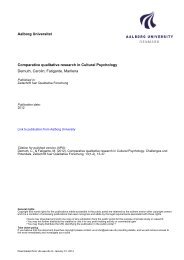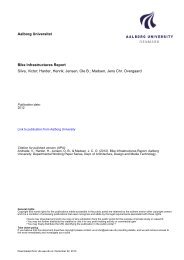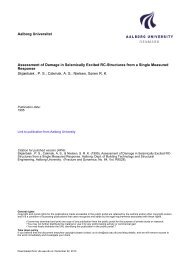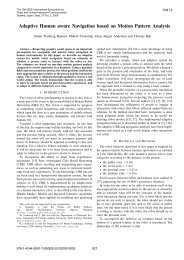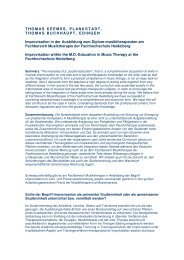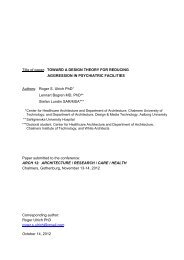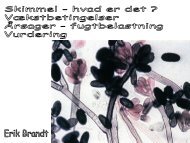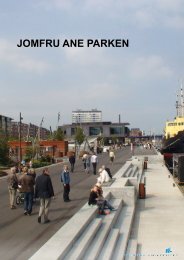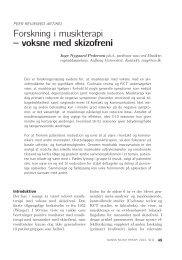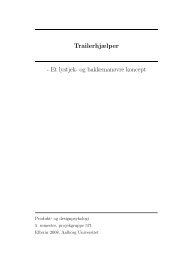Galland EPS 2012 - VBN
Galland EPS 2012 - VBN
Galland EPS 2012 - VBN
Create successful ePaper yourself
Turn your PDF publications into a flip-book with our unique Google optimized e-Paper software.
1374 D. <strong>Galland</strong><br />
The larger cities have increasingly been able to detect that problems become more<br />
complex and more difficult to solve by known means. The most notable is that the<br />
larger cities have been hit hard by unemployment during the last 10 years. Unemployment<br />
is now above the national average. Therefore it is important that these<br />
cities engage in promising business policy. (Ministry of the Environment, 1987,<br />
p. 10, author’s translation)<br />
The last national planning report of the decade pointed towards a major and radical shift<br />
in Danish national planning. The 1989 report entitled “The Danish regional picture now<br />
and in the future” (Det regionale Danmarksbillede nu og i fremtiden) depicted how the<br />
country was to develop on a geographically differentiated basis, stressing the new challenges<br />
to be faced when entering the Single European Market and the need for adopting<br />
an international position. The report was clearly strategic, as it served as a preamble for<br />
subsequent national planning reports.<br />
Downloaded by [Daniel <strong>Galland</strong>] at 07:22 25 July <strong>2012</strong><br />
It is the government’s view that the earlier form of development pursued by the<br />
nationwide goal of equality is outdated. The future must be guided by regional<br />
political activities that have diversity. Attention must be given to harnessing the<br />
development potential of the regions to strengthen Denmark’s position internationally.<br />
(Ministry of the Environment, 1989, p. 5, emphasis added, author’s translation)<br />
The diversity goal takes its point of departure in the government’s liberal ideology and<br />
its agenda to reform distribution policy resulting on the push to stimulate private and local<br />
solutions rather than the former public and national ones (Nielsen & Olsen, 1990). Moreover,<br />
diversity seemed to reflect the national government’s desires towards promoting<br />
deregulation and changing its sectoral foci (Jørgensen & Tonboe, 1993). This can be illustrated,<br />
for instance, by the shift away from manufacturing to tourism and transport. The<br />
shift from equality to diversity was similarly influenced by the change in focus within<br />
regional policy in Western Europe, which in the 1980s shifted from regional balance to<br />
regional development programmes.<br />
In the 1980s, national planning discourse was influenced by the neoliberal climate<br />
that swept most of the West. The Keynesian welfare state policy was challenged<br />
under the slogans of de-centralization and modernization. (Jensen & Jørgensen,<br />
2000, p. 34)<br />
It was the view of the government by the end of the decade that the expansion of the<br />
manufacturing industry and population growth had become more equally distributed<br />
within Denmark as a result of policy measures that were adopted during previous years.<br />
As a result of this perception, the need for regional support to sustain peripheral areas<br />
was no longer necessary. This position asserted that pursuing equal development<br />
through a hierarchy of urban settlements would rather imply little diversification<br />
amongst Danish regions and thereby an obsolete strategy for regional development.<br />
Therefore, in support of the new diversity and internationalization agenda, the liberal–<br />
conservative coalition government established Copenhagen to be the metropolitan<br />
centre upon which the country would rely on to meet its redefined national goals<br />
(Ministry of the Environment, 1989, p. 34). This assertion was equally sustained by the


